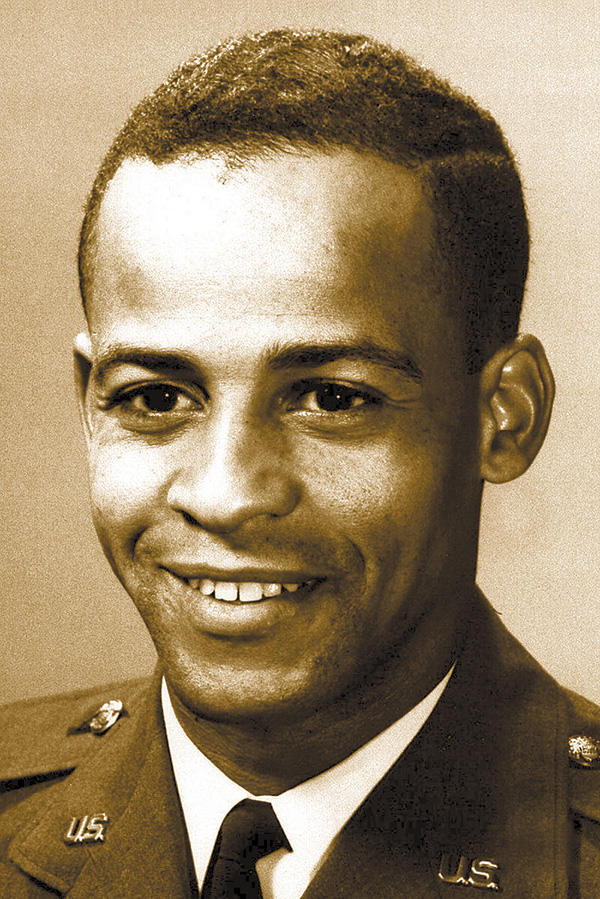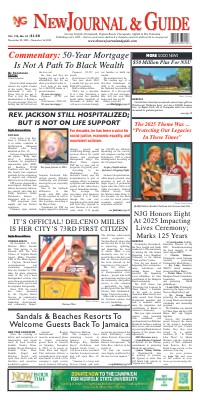Black History
America’s First Black Astronaut Trainee, Reaches Space at 90
Ed Dwight, America’s first Black astronaut trainee, achieved his dream of reaching space at age 90 aboard Blue Origin’s New Shepard rocket. This historic flight marks him as the oldest person to reach space, a testament to his enduring legacy and pioneering spirit.
#EdDwight #FirstBlackAstronaut #BlueOrigin #SpaceTravel #HistoricFlight #AviationHistory #BlackHistory #Astronaut

By Stacy M. Brown
Senior National Correspondent
@StacyBrownMedia
NNPA NEWSWIRE
Ed Dwight, the pioneering African-American who came close to becoming America’s first Black astronaut six decades ago, achieved his long-awaited journey into space at the age of 90. On Sunday, May 19, Dwight, along with five crewmates, soared aboard Blue Origin’s New Shepard rocket.
The liftoff from Blue Origin’s West Texas launch site was the company’s first passenger flight in nearly two years. This approximately 10-minute suborbital flight etched Dwight’s name in history as the oldest person to reach space, surpassing Star Trek actor William Shatner, who held the record at age 90 until Dwight’s journey.
Dwight’s fellow passengers included venture capitalist Mason Angel, French craft brewery founder Sylvain Chiron, entrepreneur Kenneth Hess, aviator Gopi Thotakura, and retired accountant Carol Schaller. Together, they experienced a brief but transformative journey as the rocket ascended over 347,000 feet, crossing the Kármán line, the internationally recognized boundary of space. After a few moments of weightlessness, the New Shepard booster landed smoothly near the launch site, with the crew capsule following under two of its three parachutes.
Emerging from the capsule, Dwight expressed his elation, shaking his fists in triumph. “Fantastic! A life-changing experience. Everyone needs to do this!” he exclaimed. Reflecting on the experience, he added, “I didn’t know I needed this in my life, but now I need it in my life.”
In the 1960s, Dwight, then an Air Force captain, was fast-tracked for space flight following President John F. Kennedy’s call for a Black astronaut. Despite his top-half graduation from a prestigious test pilot school, he was passed over for astronaut selection. His autobiography, “Soaring On The Wings Of A Dream: The Untold Story of America’s First Black Astronaut Candidate,” recounts that challenging period.
Following his Air Force tenure, Dwight became a celebrated sculptor, specializing in depictions of historic African-American figures. “I’ve got bragging rights now,” Dwight told NPR post-launch. “All these years, I’ve been called an astronaut, but now I have a little [astronaut] pin, which is a totally different matter.”
Recalling the flight, Dwight remarked on the pronounced curvature of the Earth at their altitude. “That line between the atmosphere and space – it was like somebody pulled the curtains down over the windows.”
The cost of Dwight’s ticket was shared among Blue Origin, Space for Humanity, and the Jaison and Jamie Robinson Family Foundation. Reflecting on his achievement, Dwight expressed his eagerness for further space exploration. “I want to go into orbit. I want to go around the Earth and see the whole Earth. That’s what I want to do now,” he said.
Born in 1933 on the outskirts of Kansas City, Kansas, Dwight grew up under the guidance of his mother, Georgia Baker Dwight, who instilled in him the belief that he could achieve anything. An avid reader and talented artist, Dwight pursued an aviation career, joining the United States Air Force in 1953 and earning a degree in Aeronautical Engineering from Arizona State University.
Selected as the first Negro astronaut trainee in 1962, Dwight’s journey was marred by discrimination and political setbacks, leading to his resignation in 1966. Transitioning to a career in art, Dwight received a Master of Fine Arts and established himself as a renowned sculptor. His works, including monuments to the Underground Railroad and memorials to Dr. Martin Luther King Jr. and George Washington Williams, have earned a permanent place in American cultural history.
When asked what he’d like to do for an encore, Dwight told NPR he’d like a second trip into space. “I want to go around the Earth and see the whole Earth,” he proclaimed. “That’s what I want to do now.”


 Hampton Roads Community News4 days ago
Hampton Roads Community News4 days ago54-Year-Old MEAC Tournament Is Keeping Up With The Times

 Black Arts and Culture5 days ago
Black Arts and Culture5 days agoCelebrating Imani For Kwanzaa In Hampton Roads

 Black Business News6 days ago
Black Business News6 days agoOur Path Forward To 2027

 Black Community Opinions3 days ago
Black Community Opinions3 days agoBaltimore City Launches New Initiative To Help Poor Avoid Homelessness

 Political News in Virginia5 days ago
Political News in Virginia5 days agoLocal Health Advocate Pushes Va. Sodium Warning Label Bill

 Black Business News6 days ago
Black Business News6 days agoBlack America’s Cultural Icons Whom We Lost in 2025

 Entertainment6 days ago
Entertainment6 days agoBridge Corner: The American Bridge Association (ABA)

 National News5 days ago
National News5 days agoMaduro Faces U.S. Judge; Global Divide Is Exposed






















You must be logged in to post a comment.